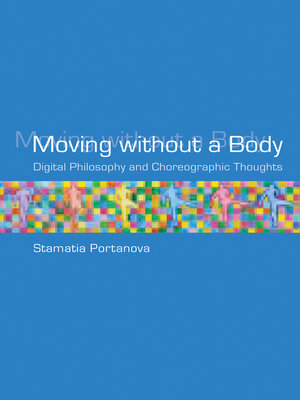Moving without a Body
ebook ∣ Digital Philosophy and Choreographic Thoughts · Technologies of Lived Abstraction
By Stamatia Portanova

Sign up to save your library
With an OverDrive account, you can save your favorite libraries for at-a-glance information about availability. Find out more about OverDrive accounts.
Find this title in Libby, the library reading app by OverDrive.



Search for a digital library with this title
Title found at these libraries:
| Library Name | Distance |
|---|---|
| Loading... |
Digital technologies offer the possibility of capturing, storing, and manipulating movement, abstracting it from the body and transforming it into numerical information. In Moving without a Body, Stamatia Portanova considers what really happens when the physicality of movement is translated into a numerical code by a technological system. Drawing on the radical empiricism of Gilles Deleuze and Alfred North Whitehead, she argues that this does not amount to a technical assessment of software's capacity to record motion but requires a philosophical rethinking of what movement itself is, or can become.
Discussing the development of different audiovisual tools and the shift from analog to digital, she focuses on some choreographic realizations of this evolution, including works by Loie Fuller and Merce Cunningham. Throughout, Portanova considers these technologies and dances as ways to think—rather than just perform or perceive—movement. She distinguishes the choreographic thought from the performance: a body performs a movement, and a mind thinks or choreographs a dance. Similarly, she sees the move from analog to digital as a shift in conception rather than simply in technical realization. Analyzing choreographic technologies for their capacity to redesign the way movement is thought, Moving without a Body offers an ambitiously conceived reflection on the ontological implications of the encounter between movement and technological systems.







